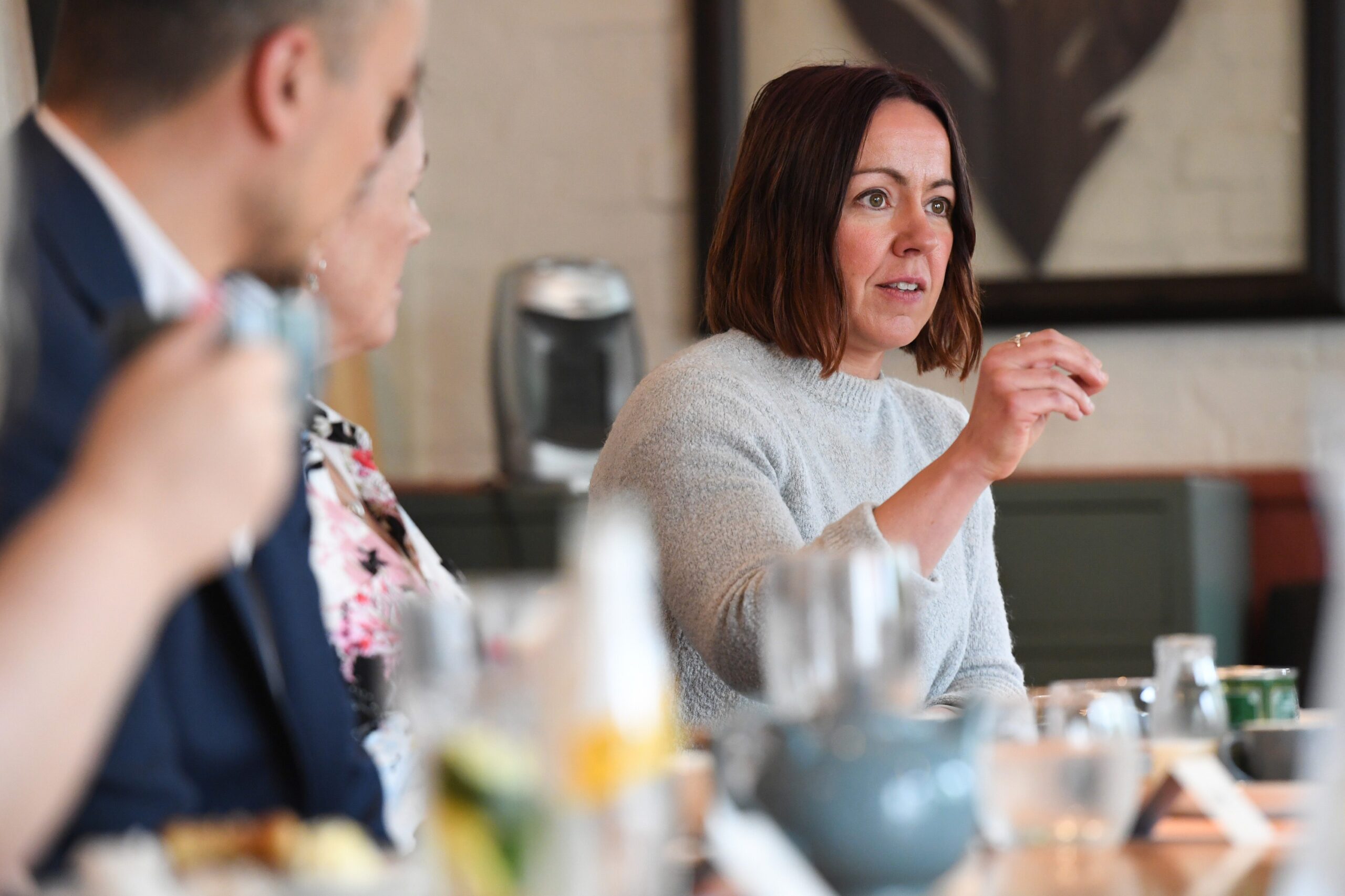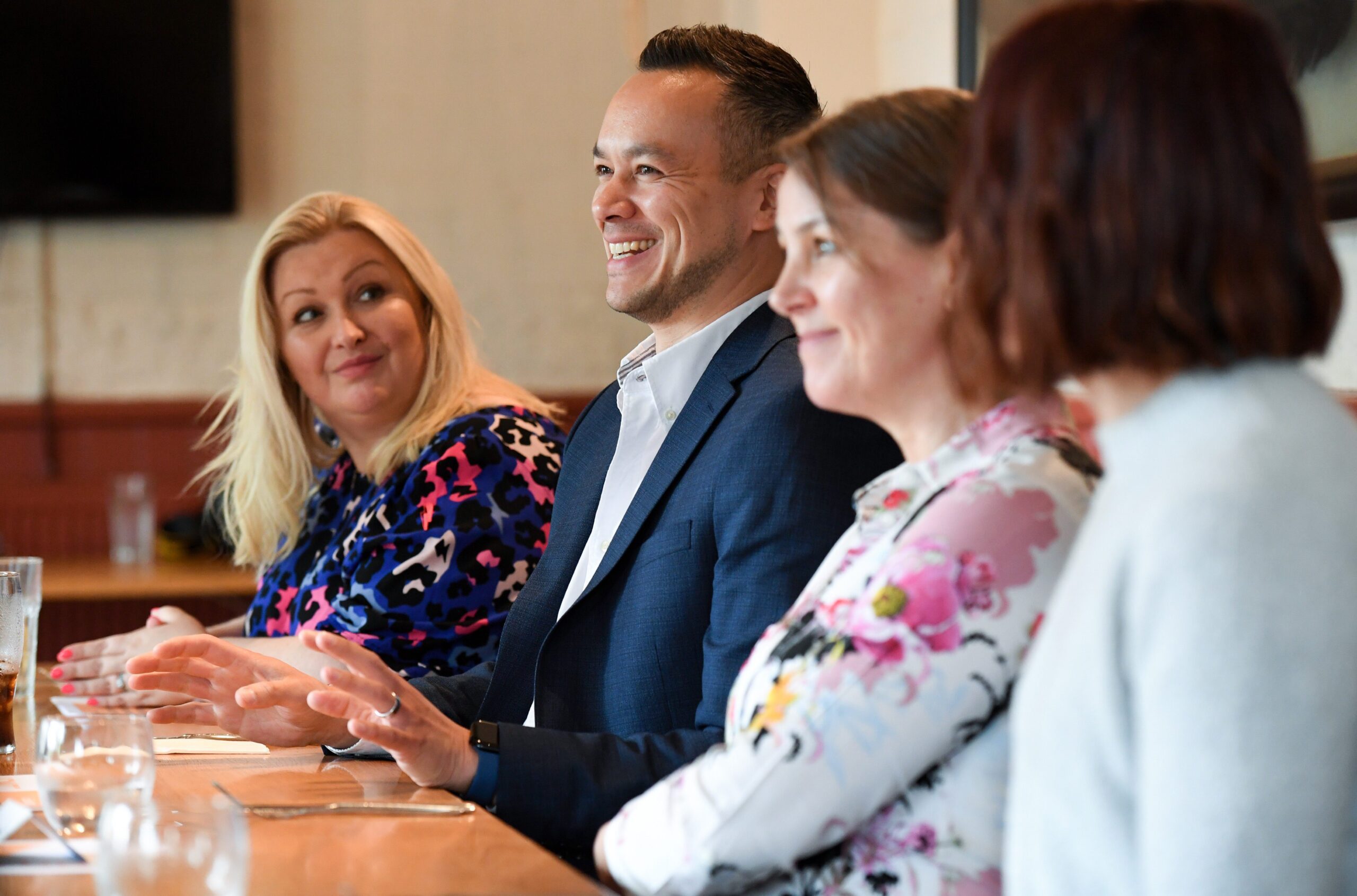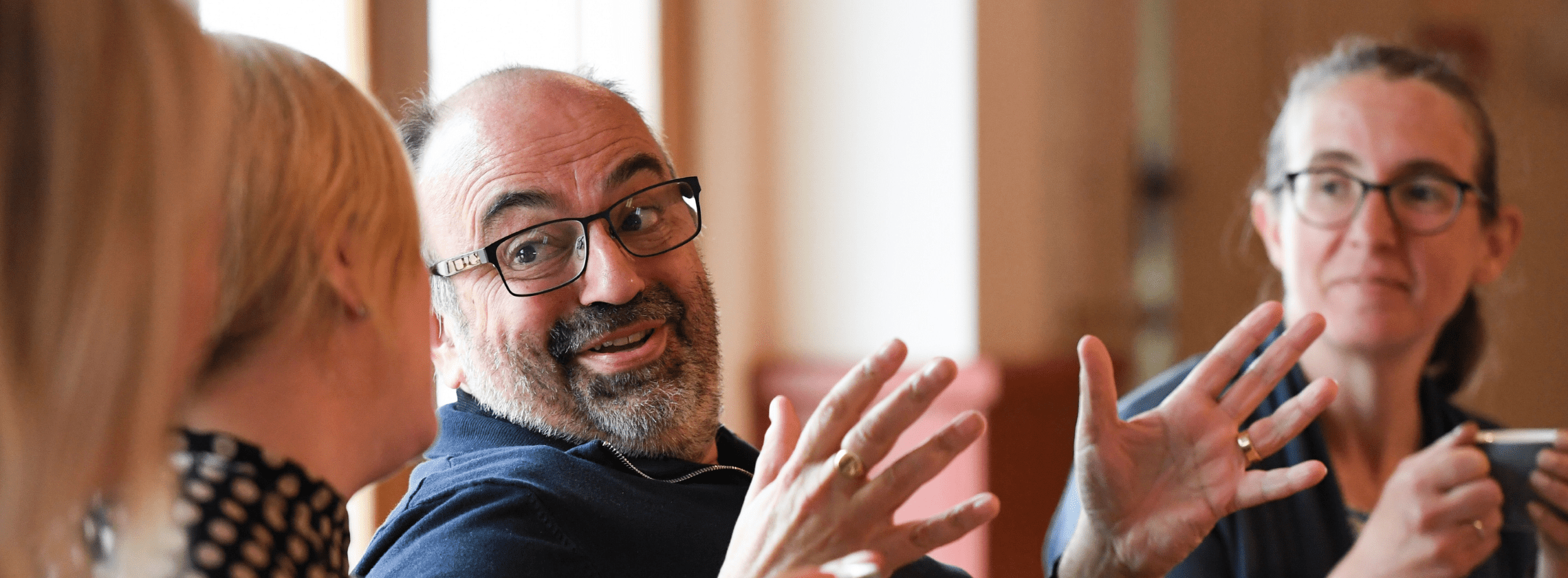SMEs are often described as the lifeblood of our local economy and their ability to grow and develop is vital if the region is going to thrive.
Starting a business is, in itself, a risk but what happens as that business becomes more established – does the economy rely on entrepreneurs and small business owners being prepared to embrace risk, and is collaboration at the heart of driving those small business forward successfully?
 Those were the questions being asked at Yellowyoyo’s regular forum for invited guests – The Lunch – which brings together key figures from the business community to discuss the topics that matter most.
Those were the questions being asked at Yellowyoyo’s regular forum for invited guests – The Lunch – which brings together key figures from the business community to discuss the topics that matter most.
Hosted by Amanda and Bryan Wright from Yellowyoyo, the most recent event at the Swan in Salford brought together Mandy Legg, who was Mayoress of Milton Keynes until earlier this year; Benn Klewpatinond, founder and CEO of product realisation company Inond; Debbie Lewis, Regional Ecosystem Manager at NatWest Business; Tim Lee, Founder of networking group Collaborate MK; Liz Newell, a Partner at MHA; CEO of Willen Hospice, Kate Broadhurst; and Dr Chloe Sharp, founder research consultancy Sharp Insight.
Bryan Wright opened the discussion by asking if embracing collaboration and risk was the right strategy for small businesses.
He said: “SMEs drive growth in this country and Milton Keynes is full of them. One of the things we’re finding at the moment is that many people are shying away from risk. There’s a lot happening that’s causing disappointment, it’s an age of uncertainty, and people don’t necessarily want to be risk takers. Maybe they can’t afford to, they’re uncomfortable with risk, or it’s about timing.”
Dr Chloe Sharp founded Sharp Insight to make research more accessible and to raise awareness of how important user and market research is to getting a business off the ground, or when taking risks on developing new services and products.
“Collaboration and risk are at the core of innovation,”she said. “For an innovative product being developed, a business may need to work with a university or other organisation, and collaborations can carry risks, particularly if they are new, so having clear expectations at the start is crucial.
When innovating, you take a calculated risk when applying for government funding for research and development, because you might be competing for funding against many other companies and may not win it.
“However, the biggest risks often pay off. A clear vision of how everyone is going to collaborate and work together is vital. Sometimes you are genuinely pushing the envelope, but it’s those big things that are disruptive and game-changing that are going to have the biggest impact. It’s through innovation and risk-taking that most of the impact comes.
“And that is why research in product development and innovation is so important because if you don’t know exactly what your customers want, you can’t give it to them.”
Bryan Wright described Milton Keynes as a city that’s hugely collaborative, saying: “You have your own community, your own ecosystem, and then you have Milton Keynes as an entity in itself – a very strong entity – and there’s so much opportunity to collaborate. That collaboration is incredibly important. Building an ecosystem around the business, with people who are experts at the things we don’t do ourselves.”
Amanda Wright added: “There’s definitely an appetite now for collaboration. Purporting to, if not actually being, a full- service agency has certainly been popular in the past. I think it’s accepted now that you can’t possibly do everything to the same exacting standards that you should set, and neither should you necessarily want to. At Yellowyoyo we’ve always been transparent about what we offer in house and where we work with experts outside the business – individuals and organisations that we like to work with and trust to deliver for our clients.”
Benn Klewpatinond added: “I think you need to know what you can do in your business, and what you can’t. You don’t need to be able to do everything as an individual. Building relationships with those who can do what you can’t, where you need support to drive growth, means you can concentrate on what you can do and know.
“It’s all about people. We are all different types of people, have different ways in which we communicate with one another, but collaboration is 100% key so that your main focus has the opportunity to thrive.”
NatWest Business exists to support the start-up, scale-up and exit of businesses across all sectors. Its six-month accelerator programme assists entrepreneurs in moving their businesses forward, promoting collaboration with other companies where there is a mutual benefit.
Debbie Lewis explained: “When people join our accelerator programme, or come to us because they need something, we challenge them on why they want it.
“Entrepreneurs can be very easily distracted by opportunity, and even the business owner with the strongest values and mission can be quickly and easily sidetracked by something exciting or fun that seems like a good opportunity.
“We encourage them to make sure that everything is in line with their why, their vision and their values. At the same time, we have to ensure any collaboration is mutual, ask whether it’s right for the other party, so going to be mutually beneficial.”
Tim Lee founded Collaborate MK during lockdown, running networking sessions on Zoom to keep the business community connected during what was an incredible challenging time. Since then, the organisation has grown, with the support of some of those businesses who were involved from the beginning.
He said: “Sometimes it’s amazing how supportive the local business community is. I didn’t notice that supportive community until we all got on Zoom, and that changed my mindset completely.
“Getting the support and building a team behind me was amazing, and now I know I have a lot of people to turn to on different aspects. The relationships that have built up since then will stand the test of time.”
Kate Broadhurst spoke about the strength of collaboration in the charity sector for the benefit of all organisations.
“Charities have traditionally worked in isolation,” she said, “but I genuinely see a future where we ensure all charities co- exist and support one another for the benefit of our community. If we don’t get ahead of the game, corporates will fill the gap, in upcycling and thrift economy, for instance, they will fill that space.
“I am talking to colleagues in the sector around how we collaborate, with the likes of the YMCA, for instance, setting up an upcycling business that provides employment for their people and raises money for the hospice.
“I think we have a chance to tear up the rule book and create something quite exciting.”
Liz Newell spoke about the ways larger organisations can help clients by being less structured and more authentic.
“We give our teams roots and wings,” she said. “There are a lot of hoops to jump through as far as audit regulations are concerned, but as long as they do that, how they work with the client and how they get to the end point is down to them.
“There has to be some structure and documentation, but we don’t tell them what to write or how to write it. I think since the pandemic, our staff feel like it’s a very different world now. They can be a lot more real and authentic and there is more collaboration.”
After a year as Mayoress, supporting her husband, Cllr Mick Legg, Mandy Legg admitted she benefited from connecting with the community.
“You can’t train to be a Mayoress,” she said. “I had to think about what I wanted to be in that space, what was important and the value of connecting with the community, shining a light on the amazing work being done in our city, and bringing together key people to make an impact on our theme of young people and mental health.
“We didn’t want to just go in and deliver a speech, we wanted to really connect, to learn more about the communities and to be vulnerable and authentic. For me it was important to share my lived experience of mental health, to give hope that we can come through life’s challenges and create an amazing life.
“It was an opportunity to learn and grow as people and to learn about our city and what it means to be part of this city.”
 It was not an entirely surprising consensus from the table. Embracing risk and fostering collaboration were considered vital strategies for the successful growth and development of small businesses.
It was not an entirely surprising consensus from the table. Embracing risk and fostering collaboration were considered vital strategies for the successful growth and development of small businesses.
To be a guest at The Lunch and to find out more about Yellowyoyo please visit yellowyoyo.co.uk













